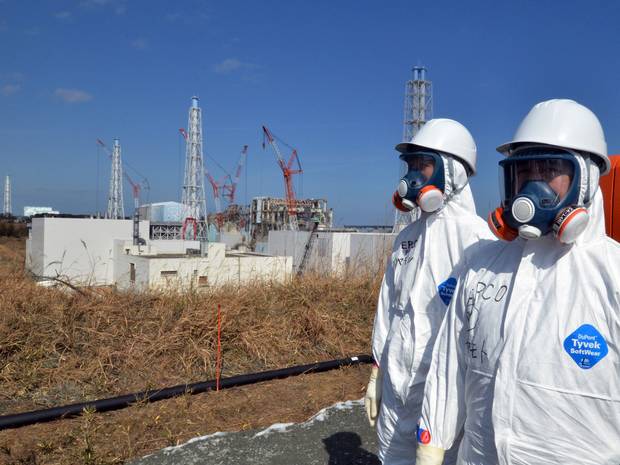-
Tips for becoming a good boxer - November 6, 2020
-
7 expert tips for making your hens night a memorable one - November 6, 2020
-
5 reasons to host your Christmas party on a cruise boat - November 6, 2020
-
What to do when you’re charged with a crime - November 6, 2020
-
Should you get one or multiple dogs? Here’s all you need to know - November 3, 2020
-
A Guide: How to Build Your Very Own Magic Mirror - February 14, 2019
-
Our Top Inspirational Baseball Stars - November 24, 2018
-
Five Tech Tools That Will Help You Turn Your Blog into a Business - November 24, 2018
-
How to Indulge on Vacation without Expanding Your Waist - November 9, 2018
-
5 Strategies for Businesses to Appeal to Today’s Increasingly Mobile-Crazed Customers - November 9, 2018
Mental Illness, Not Radiation Sickness is Top Risk for Nuclear Disaster Victims
Dr. Koichi Tanigawa from the Fukushima Medical University in Japan spoke about the relatively low amount of physical health effects linked to the Fukushima power plant versus the widespread psychological effects. Pointing out the famous 1986 Chernobyl disaster, depression and post-traumatic stress disorder rates are still higher than usual amongst those who experienced the accident and its aftermath; while a 2006 UN report officially stated that deteriorating mental health became the worst public outcome of the accident.
Advertisement
More needs to be done to plan for the psychological fall-out of events such as the Chernobyl and Fukushima disasters, according to a major report.
Moreover, the mental health toll comes not only from the trauma of dislocation and the specter of harmful radiation, but from deficiencies in the way civic and health officials managed the crisis, the articles argued.
Repeated evacuation and long-term displacement resulted in severe health care issues among the most vulnerable individuals with death rates among the elderly increasing threefold during the first three months after evacuation, according to the researchers.
There are now over 437 nuclear power plants now in operation the world over, however, nuclear power plant accidents are extremely uncommon. The United Nations report said that poor communication about the health risks “associated with radiation levels made the problem worse”.
The most recent nuclear disaster in Fukushima also saw these same problems.
However evacuees were found to be nearly five times more likely than average to have suffered psychological distress. The proportion was 14.6%, compared with 3% in the general population.
In 2014, half of more than 20,000 evacuated households who responded to a government survey were still separated from family more than three years after catastrophe struck.
“Physicians must play a key role in helping residents understand the health risks”. The study was conducted to mark the 70th anniversary Hiroshima and Nagasaki bombings b the United States. Kenji Kamiya, vice president of Hiroshima University in Japan.
Advertisement
She added: ” These papers however suggest that the measures that we put in place (long term evacuation etc) to protect ourselves from what may be a health risk, which is not definable at low doses, may be creating a greater health risk, unrelated to the dose of radiation, but related to our human responses to the situation. After Chernobyl, an increased risk of childhood thyroid cancer among those with internal exposures from consuming radioactivity in food was also seen in affected areas. Accumulated evidence about radiation health effects on atomic bomb survivors and other radiation-exposed people has formed the basis for national and worldwide regulations about radiation protection.





























